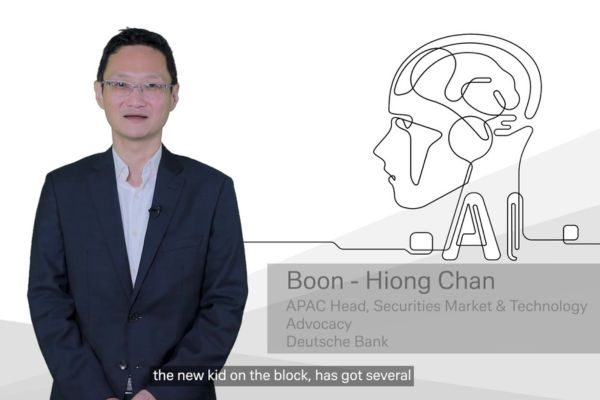You can also read the full transcript of the video here:
Artificial Intelligence (AI), the new kid on the block, has many exciting applications in the banking and financial sector. Artificial Intelligence (AI) has revolutionized industries around the world, and the financial sector is no exception.
From algorithmic trading to fraud detection, risk management and investment advice, the use of AI is well established and successful.
What’s different about the AI revolution today?
The current AI craze is actually a linguistic revolution that democratizes high technology for ordinary people.
This means that textual data management capabilities through large language models will enable imprecise natural language queries to be translated into precise instructions to be executed by machines.
This creates a sophisticated natural language layer as a human-computer interface that puts high-tech AI capabilities within reach of ordinary people, to create extraordinary results.
How is next-gen AI being used in financial services?
General AI use cases in industry include helping to synthesize documents, multiple documents, multilingual documents, and making inferences based on a chain of reasoning.
As an agent-based chat where natural language is combined with statistics and other AI engines, it allows users and customers to intuitively access complex seas of data.
This solves the age-old question of “I don’t know what I don’t know.” Now AI can find patterns in data for you.
Other use cases include analyzing probabilistic scenarios like settlement failure, analyzing the volume of unstructured text like in customer service and emails, and analyzing investments. The innovation here is that users will direct AI to achieve business goals using their natural language.
What does the future look like?
The adoption of AI would first increase productivity and develop human knowledge. It is not necessarily about eliminating people, but about figuring out how to achieve a significant impact within the framework of normal working hours.
AI can also strengthen the economic inclusion of mature workers, for example by redeploying them to train and govern models, to be tomorrow’s virtual expert assistant in democratized knowledge for the benefit of new professionals.
A future with AI is a more autonomous future where the pace of change is faster and more targeted.

